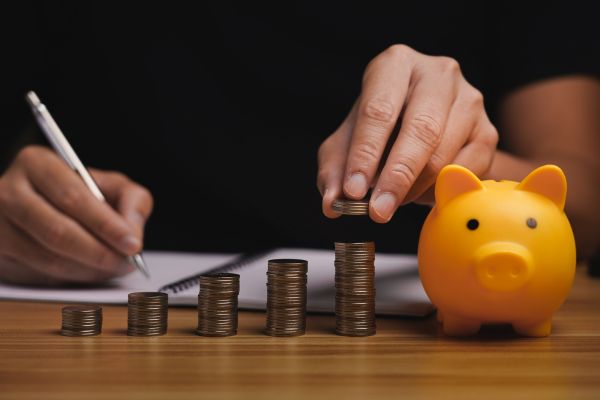How to Avoid Consumerism Complete Guide to Conscious Consumption
Consumerism is one of the biggest challenges facing modern society. With the rise of advertising, social media and easy access to credit, many people end up buying on impulse, accumulating debt and acquiring unnecessary items.
But how can we avoid consumerism and adopt more conscious habits? In this article, we’ll explore practical strategies to reduce impulse buying, control spending, and adopt a more sustainable lifestyle.
What is Consumerism?
Before learning how to avoid consumerism, it is important to understand what it means. Consumerism is the habit of buying excessively, often driven by impulse or the need to meet social standards.
Unlike necessary consumption, which involves acquiring products and services to meet our basic needs, consumerism is related to the exaggerated desire to possess material goods.
This behavior can lead to debt, frustration and even environmental problems, as the unbridled production of products generates significant impacts on the environment.
The Main Reasons for Consumerism
To know how to avoid consumerism, it is essential to identify what leads a person to spend excessively. Some of the main factors that drive consumerism are:
- Influence of Advertising: Advertisements create desires and make us believe that we need products that are often not essential.
- Social Networks and Comparison: Seeing influencers and friends flaunting material goods can create the need to consume in order to “fit in”.
- Credit Facility: Credit cards and installment purchases make consumption easier, but can generate debt in the long term.
- Immediate Pleasure: Shopping releases dopamine, a neurotransmitter associated with pleasure, creating a vicious cycle.
- Social Pressure and Status: Many people buy to demonstrate status or to belong to a certain social group.
How to Avoid Consumerism and Buy Consciously
Now that you know what consumerism is and its impacts, see practical strategies to avoid it and improve your relationship with money.
1. Assess Your Real Needs
Before any purchase, ask yourself: “Do I really need this?” Often, the answer will be “no.” Creating the habit of thinking before you buy helps you avoid impulsive purchases.
Practical tip: When you feel like buying something, wait 24 hours before making the decision. This time allows the impulsive desire to pass and you to better evaluate the need for the item.
2. Plan Your Budget
Creating a detailed monthly budget is essential to understanding where your money is going and avoid unnecessary expenses.
- List all your income and expenses.
- Set a limit on unnecessary spending.
- Use financial apps to track your spending in real time.
3. Avoid Impulse Buying
Impulse is one of the main triggers of consumerism. To avoid it:
- Avoid shopping when you are feeling emotionally upset, as emotions such as stress and anxiety can lead to impulsive decisions.
- Always make a list before you go shopping and commit to following only what is on it.
- Turn off promotion notifications and avoid browsing shopping sites without a clear objective.
4. Let Go of Status Culture
Many purchases are made to impress others or meet social standards. Understand that your identity is not tied to the material goods you own.
Practical tip: before buying something expensive, ask yourself “Am I buying this for myself or to impress others?” If the answer is the second option, rethink the purchase.
5. Practice Minimalism
Minimalism does not mean living without anything, but rather prioritizing the essentials. This lifestyle can help avoid consumerism and provide more financial and mental freedom.
- Evaluate what you actually use and need.
- Donate or sell items that you no longer need.
- Avoid accumulating products just for status or fashion.
6. Have Financial Goals
Setting financial goals can help you stay focused and avoid unnecessary purchases. Some goals include:
- Create an emergency fund for unforeseen events.
- Invest in education instead of material goods.
- Save for travel or experiences that add more value to your life than physical objects.
7. Adopt Alternatives to Consumption
If you feel the need to buy something to feel good, look for healthier alternatives to deal with this feeling, such as:
- Practice physical activities.
- Invest in hobbies that don’t involve excessive consumption.
- Socialize without having to spend money (outdoor trips, home gatherings, etc.).
8. Avoid Installments and Credit Purchases
Installment payments may seem advantageous in the short term, but they can lead to debt in the long term. Prefer to pay in cash and avoid compromising your future income with installments.
If you are going to use a credit card, use it consciously and always pay the full amount of the invoice to avoid abusive interest rates.
9. Question Marketing and Advertising
Many marketing strategies are created to stimulate consumerism. Learning to identify these techniques can help you resist temptation.
- Don't buy because of emotional advertising.
- Analyze whether a discount is really worth it or if it is just a trick to encourage purchases.
- Be aware of passing trends that encourage unnecessary purchases.
10. Value Sustainable Consumption
In addition to avoiding consumerism for financial reasons, it is important to think about the environmental impact of our choices. Choose durable, reusable products from responsible brands.
- Prioritize quality over quantity.
- Buy from small producers and sustainable brands.
- Avoid disposables and products with excess packaging.
Avoid consumerism does not mean stopping consumption, but rather buy consciously, prioritizing what really adds value to your life.
Controlling impulses, planning finances and adopting sustainable habits are essential steps towards a more balanced and financially healthy life.
Now that you know how to avoid consumerism, start applying these strategies in your daily life and see the difference it will make in your financial life and your well-being!






